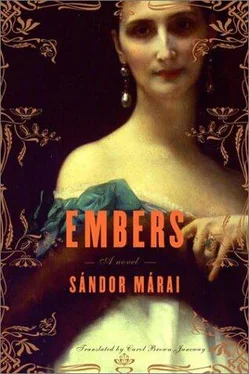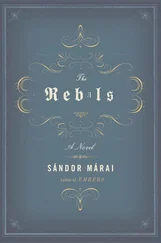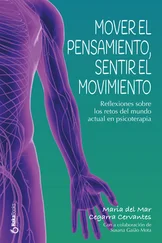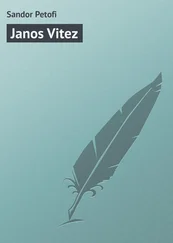That is what I have lived for, for forty-one years, that is why I neither killed myself nor allowed others to kill me, and that is why I have not killed anyone myself, thank heaven. The time for revenge has come, just as I have wished for so long. My revenge is that you have come here across the world, through the war, over mine-infested seas, to the scene of the crime, to answer to me and to uncover the truth together. That is my revenge. And now you must answer.”
The last words are almost whispered. The guest has to lean forward in order to hear properly.
“It may be that you are right. Ask. Perhaps I can answer you.”
The candles dim, and the dawn wind rustles through the great trees in the garden. The room is now almost completely dark.
There are two questions you must answer, says the General, also bending forward. He sounds as if he is whispering a confidence. “Two questions I formulated long ago in the years I was waiting for you, and that only you can answer. I can see you think I would like to know if I was wrong or not, that you really did intend to kill me that morning on the hunt.
If it was not just a figment of my imagination, because after all, nothing happened, and even the best huntsman’s instinct may play tricks on him. And you think the second question is: Were you Krisztina’s lover? Did you betray me, as the phrase goes, and did she betray me, in the usual wretched sense of the word? No, my friend, neither of these questions interests me anymore. You have answered them yourself, time has answered them since, even Krisztina answered them in her fashion. I have all your answers. You gave yours when you fled the town the day after the hunt and abandoned the colors, as men used to say when they still believed in the true meaning of those words. I’m not asking that question, because I know for certain that you wanted to kill me that morning. I’m not accusing you-in fact, I sympathize with you. It must be a terrible moment when a man is driven to pick up a gun and kill the person closest to him out of whatever sense of need. That’s what happened to you in that second. You don’t dispute it? … You have nothing to say? It’s too dark for me to see your face, but it hardly makes sense to send for fresh candles now, the time for revenge has come and we can understand and recognize each other even in the shadows. The time has come and we need to get through it. All these years I have never doubted that you wanted to kill me, and I’ve always pitied you. I know what you felt so exactly that I could have been standing in your place during that terrible instant when you were overwhelmed. Night had not yet given up its terrors, the underworld still had an open gateway into our world of day, dawn was just about to break, and for a moment you were transported right out of yourself Such a terrifying temptation.
I recognize it. But that’s all the stuff of a police report, do you see?
… What would I do with the kind of facts required for a day in court, when mine are in my heart and in my head? What would I do with memories of some musty alcove, the sultry secrets of a bachelor’s apartment or the decayed remains of an adultery or the intimate memories of a dead woman and two old men stumbling toward the grave? What a poor, pathetic trial it would be, if now, at the end of our lives, I wanted to take you to court for adultery and attempted murder and I tried to force a confession out of you at a point when the law would regard the act or the not-quite-act as having long since passed the statute of limitations? It would be mortifying, and unworthy of both of us and our youth and our friendship. And perhaps it would make you feel better to recount it all, or what facts there are to recount. But I don’t want you to feel better,” he says calmly. “I want the truth, and that doesn’t lie in a few long-out-of-date facts and the private passions and errors of the body of a woman long dead and turned to dust … What is all that to me anymore, me the husband, you the lover, now that her body no longer exists and we have grown old? We will talk these things through once more, try to establish the truth and then go to our deaths, I in this house, you somewhere else, in London or the tropics. At the end of our lives, what do truth and falsehood count, or deceit, betrayal, attempted murder, or actual murder, or the question of where, when, and how often wife, the love and hope of my life, betrayed me with my closest friend?
You talk about all these sad and demeaning things, you admit everything, you tell exactly how it began, what kind of envy, jealousy, anxiety, and sadness drove you into each other’s arms, what you felt when you embraced her, what feelings of guilt and revenge filled Krisztina’s body and mind all those years … you could d o all that, but what would any of it be worth? At the end it all becomes very simple, what was and what might have been. What was once is not even dust and ashes now. What once made our hearts burn until we thought we would either die or have to kill someone-and I know that feeling, I, too, knew that terrible temptation, shortly after you left, when I was alone with Krisztina-all that is less than the dust the wind blows across the graveyards. It is humiliating and pointless even to mention it. And anyway, I know it all so exactly that I might have read it in a police report. I could recite you the trial evidence like a lawyer at the hearing: And then? What would I do with the secrets of a body that no longer exists? What is fidelity, what do we expect of the woman we love? I am old, and I have thought a great deal about this too. Is the idea of fidelity not an appalling egoism and also as vain as most other human concerns? When we demand fidelity, are we wishing for the other person’s happiness? And if that person cannot be happy in the subtle prison of fidelity, do we really prove our love by demanding fidelity nonetheless? And if we do not love that person in a way that makes her happy, do we have the right to expect fidelity or any other sacrifice? Now, in my old age, I would not dare answer these questions as unequivocally as I would have done forty-one years ago, when Krisztina left me alone in your apartment, where she had been so often before me, where you had assembled all those objects in order to receive her, where two people close to me betrayed and deceived me so vulgarly, so ignominiously, and-as I realize now-with such banality. That is what happened.” His voice is indifferent, almost bored.
“And what people call ‘,’ the sad and banal rebellion of a body against a situation and a third person-in retrospect is almost alarmingly a matter of indifference, almost the source of pity like a quarrel or an accident. I did not understand this back then. I stood in your secret apartment as if I were taking in the details of a crime, I stared at the furniture, the French bed … When one is young and one’s own wife deceives one with the only friend who is closer than a brother, it is natural to feel that the world has crashed around one. It is inevitable, because jealousy, disappointment, and vanity are all excruciating. But it passes … not consciously, and not from one day to the next. Years later, the fury is still there-and yet finally it is over, just as life will be one day. I went back to the castle, to my room, and waited for Krisztina. I waited to kill her or to have her tell me the truth so that I could forgive her. I waited until evening, then I went to the hunting lodge, because she had not come. Which was perhaps childish … Now, looking back, when I want to pass judgment on myself and others, I see this pride, this waiting, this departure, as somewhat childish. But that’s how things are, do you see, and neither reason nor experience can do much to change one’s stubborn nature. You, too, must know this now.
Читать дальше












